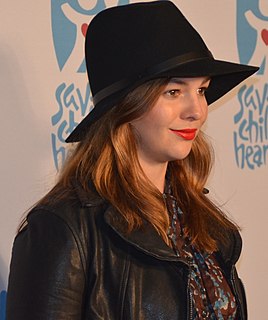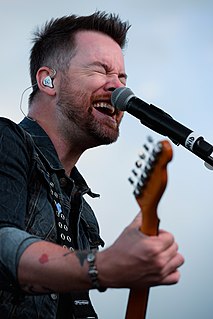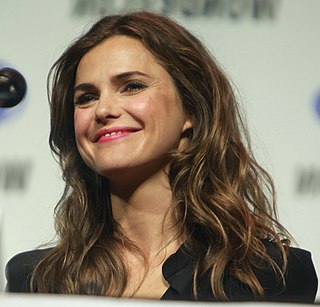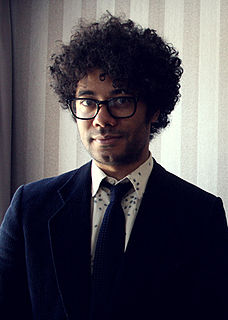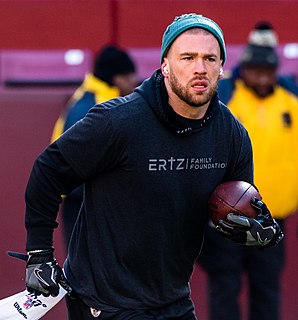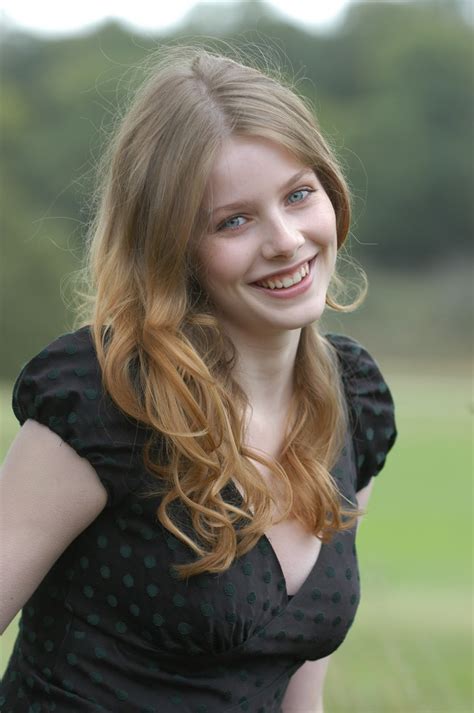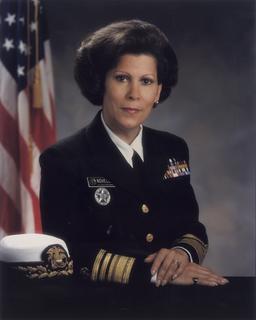A Quote by Amber Tamblyn
The poetry when I was a kid felt like something that I could control, and whether it failed or not, whether it was good or not, was totally on me and I could accept that. It was entirely mine.
Related Quotes
I left film because I felt that photography was my art. It was something I could do on my own, whereas film was so collaborative. I thought as a photographer I could make something that was artistic and that was mine, and I liked that. And it wasn't until I got back into film and I have very small crews and I could do very tiny filmmaking that wasn't 100 people that I still felt that I was making something artistic as a filmmaker. So, you know, I'm an artist, and whether it's photography or film, I want my voice to be there and I think my voice is very strong in this film.
I always believe that every song tells a story, so the last thing I want to do is edit out like the meat of the story. I would pick songs based off a), whether I felt like I could do anything with them, and b) whether I felt like I could keep the story intact. And then you sit in with one of the piano players and one of the vocal coaches and kind of work out your arrangements that way.
I kept as still as I could. Nothing happened. I did not expect anything to happen. I was something that lay under the sun and felt it, like the pumpkins, and I did not want to be anything more. I was entirely happy. Perhaps we feel like that when we die and become a part of something entire, whether it is sun and air, or goodness and knowledge. At any rate, that is happiness; to be dissolved into something complete and great. When it comes to one, it comes as naturally as sleep.
I felt like someone had ripped my heart out and tossed it across the other side of the room. There was a burning, agonizing pain in my chest, and I had no idea how it could ever be filled. It was one thing to accept that I couldn't have Dimitri. It was something entirely different to realize someone else could.
It's just that when you heard hip-hop, no matter where you were, it was a culture that kind of made you want to try to be part of it. Whether you thought you were an artist, whether you thought you could be a DJ, whether you thought you could breakdance, or whether you thought you could rap. It was the kind of culture that had a lot of open doors.
With a live performance, you feel nervous because there's a sense it could do well or badly based on how well you are performing, whereas the only variable with a film premiere is technical, which invariably you have very little control over, whether the sound is good, whether the acoustics of the room are good.
The first time I ever performed spoken word poetry in front of a big crowd, it totally failed. It ended, people barely clapped...in retrospect the poem was terrible. And for a while I thought this was something I would never do again. And then I realized that, in my 17-year-old head, that was the worst it could have been. And it wasn't that bad - [because] from there, it could only get better. And I think that failure kind of freed me up to explore and not be afraid of failing again.
